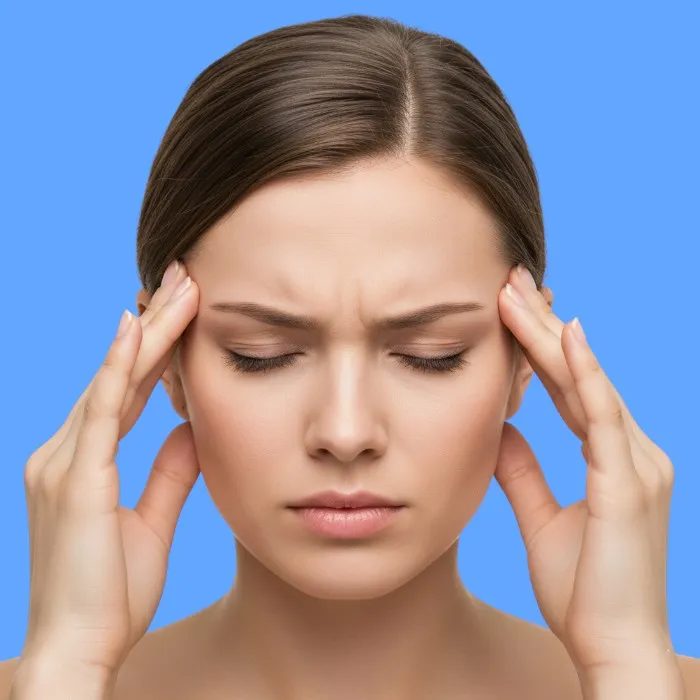what is tension headache?
Tension headache is the most common type of headache among people. It is often described as a pressing or tightening pain on both sides of the head or at the back of the head and neck.
It develops gradually and can last from half an hour to several days. The patient may feel as if a tight band is wrapped around their head.
what are the causes of tension headache?
There are several common causes of this condition, including:
- Persistent psychological stress or chronic anxiety.
- Physical exhaustion or lack of sleep.
- Sitting for long periods in front of screens or in poor posture.
- Hunger or skipping meals.
- Excessive caffeine intake or sudden withdrawal.
- Loud noise or strong lighting.
- Jaw or dental problems.
- Hormonal or physical changes such as menstruation.
what are the common symptoms of tension headache?

There are several common symptoms that patients may experience, including:
- Pressing or tightening pain on both sides of the head.
- Feeling of heaviness or pressure in the forehead or back of the head.
- Pain in the neck or shoulders.
- Mild sensitivity to light or sound.
- Difficulty concentrating or feeling fatigued.
- Sleep or mood disturbances.
- No nausea or vomiting (unlike migraine).
- Persistent pain without throbbing.
when should you see a doctor?
It is recommended to consult a doctor promptly if any of the following occur:
- Headache persists for days without improvement.
- Sudden change in headache pattern or intensity.
- Neurological symptoms such as limb weakness or vision disturbances.
- Headache occurs after a head injury.
- Headache repeats more than twice a week.
- Pain does not respond to usual painkillers.
- Headache affects daily life or work.
- Family history of neurological disorders.
what are the treatment options for tension headache?
There are several ways to treat the condition, including:
- Taking painkillers such as paracetamol or ibuprofen.
- Using relaxation techniques like deep breathing or meditation.
- Improving sleep quality and rest.
- Reducing psychological stress through behavioral or psychological therapy.
- Exercising regularly.
- Avoiding triggers like noise or strong lighting.
- Massaging the neck and shoulders to relieve muscle tension.
- Applying warm or cold compresses to the head.
can tension headache be cured?
Yes, tension headache can be cured in many cases, especially if the main cause is identified and treated.
Lifestyle adjustments and avoiding triggers greatly help in reducing the frequency of episodes and improving quality of life.
what are the prevention tips for tension headache?
There are several tips to help prevent the condition, including:
- Maintaining a regular sleep routine.
- Avoiding psychological stress as much as possible.
- Taking breaks during work or study.
- Doing light exercises like walking or yoga.
- Drinking enough water daily.
- Eating balanced meals and not skipping them.
- Reducing caffeine and stimulants.
- Maintaining proper sitting posture.
what are the possible complications of tension headache?
Some complications may occur if treatment is neglected, such as:
- Headache becoming chronic and hard to control.
- Negative impact on professional or academic performance.
- Sleep and mood disturbances.
- Overuse of painkillers leading to rebound headache.
- Increased stress and anxiety due to persistent pain.
- Poor concentration and memory.
- Social relationship issues due to constant discomfort.
- Development of physical symptoms like neck and back pain.
frequently asked questions about tension headache
Is tension headache dangerous?
No, but it can be annoying and affect quality of life.
Does tension headache cause nausea?
Usually not, unlike migraine.
Does tension headache affect vision?
Not directly, but it may cause a feeling of eye heaviness.
article summary
Tension headache is a common condition that causes pressing pain in the head due to stress or fatigue.It can be easily managed by adjusting lifestyle and avoiding triggers.
Seeing a doctor is essential if the pain persists or unusual symptoms appear.